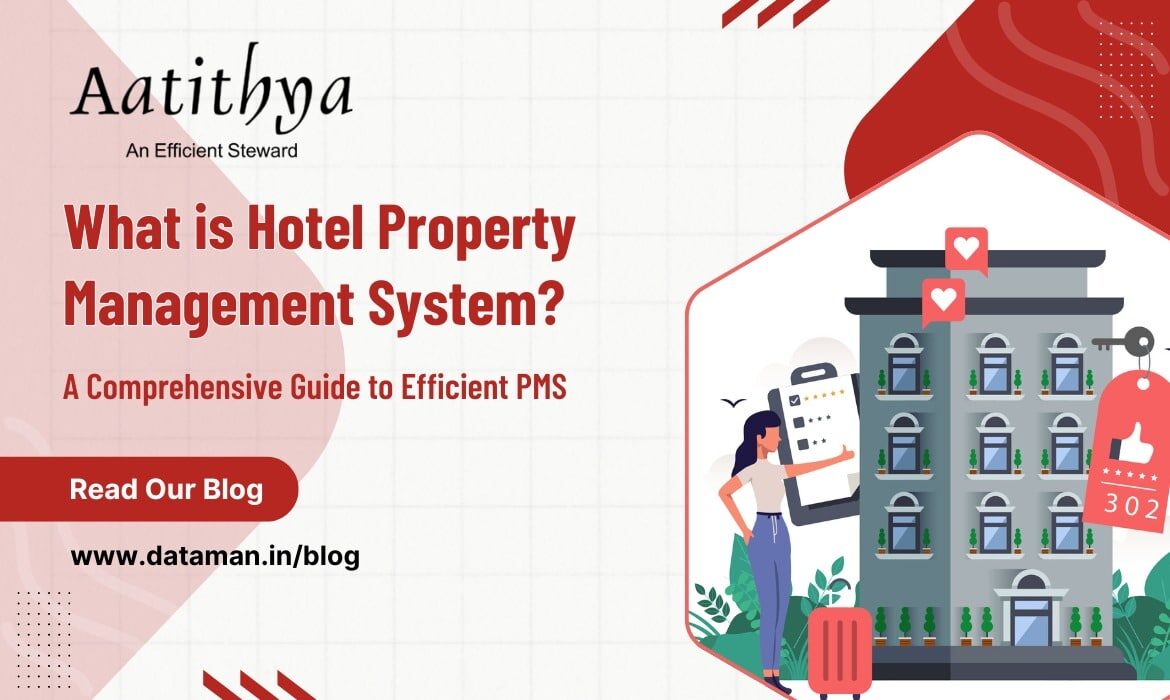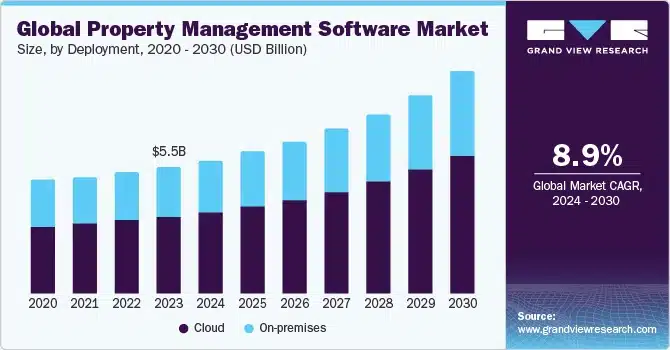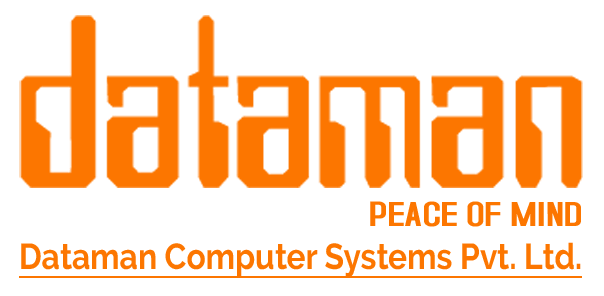- +91 9511117684
- sales@datamannet.com

Table of Contents
Post Views: 9,735
One key metric to boost customer traffic in your hotel is providing exceptional service to every guest, every time. Savvy hoteliers leverage specialized tools to deliver those services and manage daily tasks. These tools can be fancy calendars or excel sheets, but the best ones are all-in-one systems called hotel Property Management Systems (PMS).
In the hospitality industry, efficient property management is crucial for success. It allows businesses to:
- Meet rapidly advancing business requirements.
- Become more competitive.
- Impress customers with excellent services.
Whether you manage a hotel, club, banquet hall, restaurant, cafe, spa, or bar, manual processes can be labor-intensive and time-consuming. A Property Management System (PMS) can make a significant difference by automating tasks and streamlining processes.
If you are the one who have
- Started a new hotel business.
- Running an existing hotel business but inefficiently.
- Keen interest in the hotel industry or we can say, future hoteliers.
Then, this blog is for you. We will discuss the definition, importance, benefits and selection of a hotel property management system (PMS) in detail.
Understanding PMS in the Hotel Industry
A Property Management System (PMS) is a comprehensive software solution that automates and manages all aspects, especially core operations, of a hotel or hospitality property. The system replaced paper-based time consuming processes.
The most important functions include front-desk operations, reservation management from multiple sources, channel management, housekeeping scheduling, occupancy tracking, rate management and secure payment processing.
Property management systems (PMS), also known as Hotel Operating Systems (HOS), were introduced in the 1980s. Initially, these systems were called front office systems and hosted locally on that property. The systems were designed to keep track of inventory and reservations and were complicated to upgrade.
With the advancements in technology, PMS developers added revenue management, payment processing, room management, occupancy tracking, integrations with OTA, housekeeping scheduling, catering, advance reporting and much more to these systems. Nowadays, these systems are known as Legacy or On-premise systems.
In 2010, the cloud-based property management systems were introduced in the hospitality industry with some exceptional advantages that legacy systems couldn’t provide such as high security, mobility and affordability.
In a recent development, cloud based property management systems have been moving towards an open, API-first approach. This means the PMS are being designed with third party integrations. Such systems work seamlessly with other software to cover a wide range of operations in your property.
A report published in GradViewResearch estimated the global property management software market at USD 5.51 billion in 2023. This market size is expected to grow at a CAGR of 8.9% from 2024 to 2030.

Types of Property Management System (PMS)
Broadly, we can bifurcate PMS in two types:
- On-Premise PMS or Legacy System
- Cloud-based PMS
On-Premise PMS or Legacy System
On-premise PMS solutions are installed directly on your property’s hardware, with a dedicated software licence for each system. Data is typically stored on a local server you maintain, offering a high degree of control and security. However, this approach comes with a higher upfront cost for hardware and IT support compared to cloud-based systems.
Cloud-based PMS
Unlike traditional software, a cloud-based property management system (PMS) doesn’t require installing software on individual devices. There’s no need for multiple software licences – all you need is a login and password. This allows you to access the PMS from any device with an internet connection, providing ultimate flexibility and remote access.
The Importance of Digitizing Property Management
With everything going digital these days, hotels can benefit a lot by using tech tools like PMS. Secure and reliable property management solutions like Aatithya help hoteliers manage everything from bookings to cleaning.
Time Savings: Automating repetitive tasks reduces the time staff spend on administrative duties.
Cost Efficiency: By minimizing errors and optimizing resource use, hotels can significantly cut operational costs.
Enhanced Accuracy: Automated systems reduce the risk of human error in bookings, billing, and inventory management.
Improved Guest Experience: Faster check-ins, personalized services, and efficient communication contribute to higher guest satisfaction.
Also Read: Top 5 Hospital Management Software in India
Features of a Property Management System (PMS)
Front Office Management
The front office is the heart of hotel operations. A robust property management system ensures smooth check-ins and check-outs, real-time room availability updates, and efficient guest management. The intuitive interface simplifies tasks for front desk staff, enhancing productivity and guest experiences.
Point of Sale (POS) Integration
PMS integrates with POS systems, enabling seamless transactions in restaurants, bars, and other outlets within the hotel. This integration ensures accurate billing, real-time sales tracking, and inventory updates, providing a holistic view of financial performance.
Inventory Management
Effective inventory management is crucial for cost control. The inventory module of a PMS tracks stock levels, manages purchase orders, and monitors usage patterns. Automated alerts for low stock levels ensure that inventory is always optimized, preventing overstocking or shortages.
Purchase and Sales Management
Property management system simplifies procurement processes by automating purchase orders, tracking supplier details, and managing vendor payments. The sales management module provides detailed reports on revenue, helping hoteliers make informed business decisions.
Housekeeping Management
Efficient housekeeping is vital for maintaining guest satisfaction. The housekeeping module schedules and tracks room cleaning tasks, ensures timely maintenance, and updates room status in real-time. This ensures that rooms are always ready for incoming guests, enhancing operational efficiency.
Banquet Management
Managing events and banquets is a complex task that requires meticulous planning. The banquet management module handles booking schedules, event details, and billing, ensuring smooth coordination and successful event execution.
Communication Interfaces
Effective communication with guests is essential for personalized service. Advanced PMS offers a Whatsapp/SMS interface for sending automated messages and updates to guests. Whether it’s booking confirmations, special offers, or check-out reminders, this feature enhances guest engagement and satisfaction.
Mobile App Integration
In today’s mobile-centric world, having a mobile app is a significant advantage. A mobile app allows staff to access the PMS on the go, manage tasks remotely, and stay connected with real-time updates. This flexibility improves operational agility and responsiveness.
Management Information System (MIS) Reports
Data-driven decision-making is crucial for business success. The MIS reports provide comprehensive insights into various aspects of hotel operations, from financial performance to guest preferences. These reports help managers identify trends, assess performance, and strategize effectively.
Online Booking and QR Code Integration
PMS solution supports online bookings through its website and QR code integration, providing guests with a convenient booking experience. This feature not only increases direct bookings but also reduces dependency on third-party booking platforms, boosting revenue.
Channel Manager
Managing multiple distribution channels can be challenging. PMS software solutions channel manager synchronizes room availability and rates across various online travel agencies (OTAs), ensuring consistency and maximizing occupancy rates.
Biometric Attendance and Payroll Management
Efficient workforce management is essential for operational efficiency. A PMS’s biometric attendance system ensures accurate timekeeping, while the payroll management module automates salary calculations and compliance, reducing administrative burdens.
Why Choose Aatithya?
Aatithya stands out in the crowded market of PMS solutions due to its comprehensive features, user-friendly interface, and seamless integration capabilities. Its robust architecture supports various property types, from small boutique hotels to large resorts, ensuring scalable solutions for different needs.
Also Read: What is a Queue Management System and Why Do You Need One?
Conclusion
In today’s competitive market, using smart tools like PMS is a must-have. These systems ensure running a hotel smoother by simplifying tasks, saving money, and providing superior guests experience. With Aatithya, hoteliers can stay on top of things, offer amazing service, and make more profit – all at once!
FAQs
What is the hotel property management system?
A Property Management System (PMS) in the hotel industry is a software solution that automates and manages hotel operations, including reservations, front desk activities, housekeeping, billing, and more.
How does a PMS improve operational efficiency in hotels?
A PMS improves operational efficiency by automating repetitive tasks, reducing manual errors, and providing real-time data for better decision-making. This leads to time savings, cost reduction, and enhanced guest experiences.
Why is digitizing property management important?
Digitizing property management is important because it increases efficiency, reduces costs, minimizes errors, and improves guest satisfaction by automating tasks and providing real-time data for informed decision-making.
What impact does a PMS have on revenue?
A PMS can significantly impact revenue by optimizing pricing, reducing operational costs, and improving guest satisfaction, leading to repeat business and positive reviews.
0

